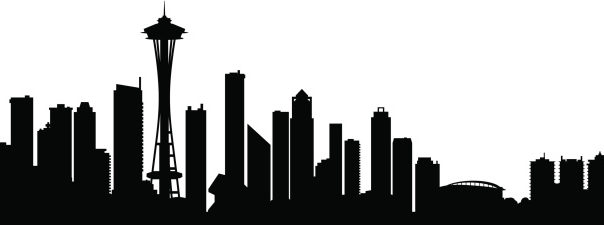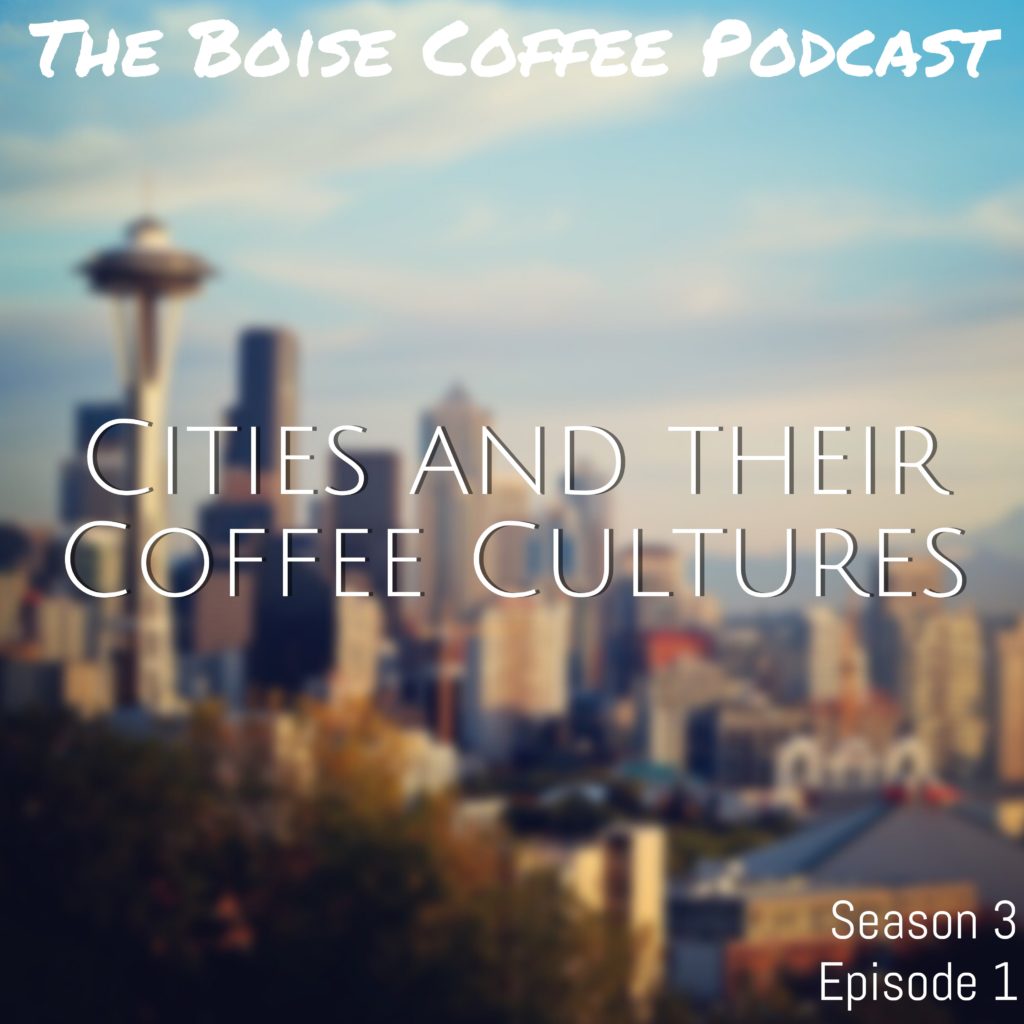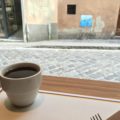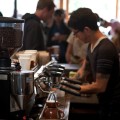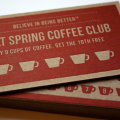Welcome back to The Boise Coffee Podcast! In this first episode of Season 3 I discuss how a city’s culture influences their coffee culture, then I give some tips on how to find great coffee when you’re visiting a new city. Here’s a quick rundown of those tips:
- Do your research. Try Googling the name of your city + specialty coffee (for example, “Phoenix specialty coffee”), and then begin narrowing your search terms accordingly. I like to copy the names of coffee shops that look interesting and paste them into the notes app on my phone, that way I have a running list.
- Prioritize your list of shops based on how close they are to wherever you’re staying (hotel, AirBnB, etc). You don’t want to get your hopes up about a cool looking cafe, only to realize it takes a 45min drive across town to get to.
- Check out online reviews of the shops that look the most promising. I like to use Foursquare, but any similar service like Yelp or Google Reviews will work just as well. I find that Foursquare has less paid reviews and better reflects local favorites, but your milage may vary.
- Be respectful to the staff of the coffee shop you choose to visit. If their coffee doesn’t quite live up to the hype, don’t throw your coffee in their faces – just make a note of it for yourself, and enjoy the caffeine rush.
- Leave a review using whatever app/service you looked the shop up on. This will help other coffee junkies, and it will leave you a digital paper trail to follow the next time you’re in town.
This episode of The Boise Coffee Podcast is brought to you by My Espresso Shop. Use offer code BOISECOFFEE to receive 10% off your order of any espresso machine or grinder. You’re not gonna find a better deal than this, so if you’ve been looking at a new piece of equipment now is the perfect opportunity to grab it and save some money! Head over to MyEspressoShop.com now!
I hope you enjoy the first episode of this brand-new season! You can look forward to the second episode in just one week – following that, I’ll be reverting back to the normal bi-weekly schedule. Thanks for listening, and if you like what you hear please leave me a review on iTunes!
Colin
Check out the full episode transcript below.
This episode of The Boise Coffee Podcast is brought to you by My Espresso Shop. My Espresso Shop is a leading online retailer of espresso machines, grinders, and accessories, and they make it incredibly easy to find what you’re looking for for your home or business. Visit MyEspressoShop.com to find out more.
Hey, and welcome to Season 3 of the Boise Coffee Podcast. On this show we talk about coffee, its history, and the culture that surrounds it today. I’m your host, Colin Mansfield, and I’m very excited to be bringing you this next installment after a long winter hiatus. If you’re a first time listener, thanks for stopping by! I hope you’ll find time to go back and listen to previous episodes – there are some really great stories and interviews that I think you’ll enjoy. If you’re a long-time listener, thanks for coming back! I’ve got some great content lined up for this season’s episodes.
Before we jump into this first episode, I want to start the season off by taking a second to talk about coffee and taste. I’m going to put this as plainly as I can: I believe you should drink coffee however you like it best. Whether that’s black, with cream, with sugar, splenda, or sweetener of choice, and whatever flavorings you prefer. With that being said, I also firmly believe that when a coffee shop works hard to make their beans taste great without any additions, you should do that roaster and barista the honor of tasting their hard work black. Then, after trying it, add whatever you want.
I thought it would be fun to ask some of my friends how they drink their coffee. I got a great variety of responses, and I’d like to share a few of those now. This is Stuart – he’s got a pretty strong opinion about how coffee is meant to be drunk.
Next, here’s Jon with a slightly different take.
This is Mary, with a quick-and-to the point answer.
Finally, this is my beautiful mother Susan:
Thanks, everyone, for submitting your responses. If you’re listening to this now and you want to share how you drink your coffee, shoot me an audio recording at BoiseCoffee@gmail.com. I’d love to include your clip on the next episode.
Today we’re talking about coffee, and we’re talking about cities. And we’re going to talk about these two things in a couple different ways.
The first thing I want to bring up is the fact that every city has its own coffee culture. What I mean by that is that every city has its own culture, and that culture extends to food, nightlife, and yes – coffee. Depending on where the city is, that coffee culture may be significantly interwoven with the rest of its culture, or it may be an insignificant side note in an otherwise thriving social setting. That’s a bit confusing, so let me explain with an example.
We’ll start with an obvious city: Seattle. It should come as no surprise to you that Seattle, the birthplace of Starbucks and countless hole-in-the-wall specialty coffee shops, has a thriving and vibrant coffee culture. That coffee culture, however, doesn’t stand alone – its very much interwoven into the rest of Seattle’s social environment. Because there are so many great coffee shops around, there’s an understanding that if a nice restaurant or cafe serves coffee, that coffee is going to be good, or at least from a well-known and respected roaster. Many bars serve quality coffee as well, and some even have cold brew on tap during summer months. Coffee isn’t a standalone thing in Seattle – it’s a part of everything.
In contrast, let’s look at New York City. The Big Apple is massive and impossible to generalize, but I’m going to take a stab at it anyways: overall, New York City doesn’t have a great coffee culture. It’s gotten a lot better (especially over the last decade), but it’s not a Mecca in the same way Portland or Seattle is. It’s got some great local and chain specialty coffee shops, to be sure, and because of its attractiveness as an international place of interest, coffee conventions and events happen there often. The sprawling NYC culture, however, does not hold coffee to a high standard in the same way Seattle’s does. If you walk into a diner or greasyspoon cafe in NYC and order a coffee, you won’t be presented with a menu of single-origins and you won’t be given the choice of Chemex or AeroPress. Instead, you’ll be given a diner mug with perfectly average commodity coffee. If you ask a local what their favorite coffee shop is, they’re more likely to tell you Dunkin Donuts than, say, Stumptown.
Let me be clear here: I’m not making a value judgement on these cities based on their infatuation with coffee, I’m merely stating that every city’s culture plays a role in developing their coffee culture. Some cities are completely obsessed with coffee while other’s couldn’t care less. This can become even more complicated when we talk about cities like Rome, Paris, and London – international cities that had a coffee culture long before the United States existed.
So why is this important? For starters, a city’s local coffee culture can give you greater insight into what the city is actually like, away from the tourist traps. Rubbing elbows with Capitol Hill staffers at Peregrine Espresso in Washington D.C. might give you a new level of appreciation for the daily routine of federal government employees, for example. Enjoying an espresso at a small cafe in a side street in Rome might save you a Euro or two and let you enjoy the scenery of everyday Roman life.
On a more practical level, though, knowing what kind of coffee culture a city has can tell you how difficult it will be to find good coffee in that city.
Last summer my wife and I traveled to Italy – you can actually hear an episode of this podcast that we recorded there if you go back a few episodes. Our trip took us all over northern Italy, but we began and ended our vacation in Milan. Milan is an interesting city – it feels more modern and urban than much of Italy, and has far less ancient attractions than Florence, Venice, or Rome. It’s a different kind of city – and, as I found out, it doesn’t have much of a specialty coffee culture.
This came as a huge surprise to me – after all, we were in Italy, the birthplace of espresso! But, as I quickly found out, Italian coffee culture as a whole is different, and in some ways, less concerned with taste than American specialty coffee culture. Espresso is everywhere, but great espresso is a little harder to find.
My plane landed in Milan a few hours earlier than my wife’s did, so it was my job to check into our AirBnB and pick her up at the airport once she landed. I had some time to kill after dropping my bags off at our room, and decided to go looking for great coffee. The first place I turned to was an app I enjoy using for local reviews – it’s called Foursquare and is similar in many ways to Yelp. I quickly found out that searching a review app for “coffee” in Italy didn’t exactly narrow down my options. Next, I turned to Google.
I searched “Specialty coffee, Milan” and clicked on the top return. It was a Barista Magazine article from 2014 titled “The First Great Specialty Cafe in Milan” and was about a local coffee shop/restaurant called Taglio. I searched for the cafe on Google Maps, found out it was about a 20min walk away from my AirBnB, so I got moving.
By the time I got to Taglio, however, they appeared to be closed. This didn’t make sense because the restaurant hours on Google clearly stated that they should be open, and their own hours posted on the front of the shop reflected this as well. The locked door and shuttered windows said otherwise. I decided to go on a walk along the nearby canal instead, hoping to find another cafe along my route. Later that evening I learned my next lesson about Italian culture, which is that many stores, restaurants included, close down for 2-3 hours, usually around 2pm, every day. This is the Italian siesta, or riposo.
Luckily, by the time Taglio opened back up I still hadn’t found a good cafe and was able to settle in and order my first cup of Italian specialty coffee. I decided that I was in the mood for something creamy, and confidently told my server I’d like a latte. My server stood there for a second, then repeated it back to me, “a latte?” “Yep,” I said “one latte, please.” As I waited for my long-awaited drink to arrive, I admired the shop’s well-decorated interior and found myself loving the sounds of Italian conversations nearby.
My drink arrived, I thanked the server, and took my first sip. “Hmmm,” I thought, “This tastes very weak.” I took another sip, trying to find the legendary espresso that the Barista Magazine article had promised me, but I couldn’t find it. There was absolutely no espresso in my drink – it was a mug of steamed milk. I politely caught the attention of my server, and asked, “Um, does this have espresso in it?” “No,” they told me, “you asked for a latte.” That’s when it hit me, and I realized that I hadn’t paid nearly close enough attention to all those Rick Steve’s books I had read to prepare for the trip.
“Latte” in Italian simply means milk. Like a big touristy bafoon, I had ordered a glass of steamed milk. As the realization dawned, I smiled at my server, apologized, and asked if she could make it into a “caffe latte” instead. She laughed a little, realizing my mistake, and said something like, “I was wondering if that’s what you meant!” The drink came back, and I finally got my first taste of Italian specialty coffee. It was amazing.
I learned two valuable lessons that night: the first is to make no assumptions about how a culture works. For the rest of the trip, my wife and I carefully planned our meals around the Italian siesta. The second is that words mean things, especially when the American idea of what something is uses a specific Italian word that may mean something else. Biscotti is another great example of this. The word “biscotti” literally means “cookie” in Italian, and doesn’t necessarily refer to the crisp twice-baked coffee dunker we’re used to in the states. That specific biscotti is called “cantucci” in Italian.
That was a long story to illustrate a simple point: a country’s culture and language influences local culture, which in turn will influence coffee culture.
Using my story as an example, I’d like to make a few suggestions for how to find great coffee when you find yourself in a new place, whether that’s a new country, state, city, or community. These tips don’t just apply to coffee – you could use many of them to help you find a great meal, or a fun place spend an evening. As someone who drinks coffee daily, and doesn’t want to resort to McCafe just because I’ve never been to Salt Lake City before, for example, I find myself using one or all of these tips often to find a great local brew. And we’ll get into them right after the break.
This episode of The Boise Coffee Podcast is brought to you by My Espresso Shop. Here’s the deal – finding high quality espresso machines, grinders, and accessories at a good price point can be a huge pain. The folks over at My Espresso Shop have made finding and purchasing the perfect espresso equipment for your home or business dead simple – and with a crazy number of incentives to make for a great buying experience. Their website makes finding the right equipment incredibly easy, with options to shop by type of equipment, or by brand name. Their incentives include free shipping and no sales tax on all espresso machines and grinders, and they even have a price match guarantee to make sure you’re getting the absolute lowest price for your coffee equipment.
For Boise Coffee Podcast listeners, My Espresso Shop has put together something special. Right now you can enter coupon code “BOISECOFFEE” (one word) at checkout and they’ll take 10% off every order that contains any espresso machine or grinder. Again, head over to MyEspressoShop.com and enter offer code “BOISECOFFEE” at checkout. And please, let them know that the Boise Coffee Podcast sent you over there.
The first thing I’d suggest is that you do a little bit of research before going someplace new. Google is your friend here, but you have to be specific in your search terms. “Phoenix coffee” will give you pages of returns that aren’t valuable, but “Specialty coffee Phoenix,” or “Third wave coffee Phoenix” are getting warmer. As I do my research, I copy the names of shops that I may want to check out and paste them in the notes app on my phone. That way I’ll have a list of places at the ready when the caffeine withdrawals start to hit.
The next thing I’d suggest is that you prioritize your research based on what’s near the place you’ll be staying. You can do this as a part of your research, or you can do it on the fly later. Either way, it may be interesting that a highly reviewed specialty coffee shop exists in the place you’re visiting, but won’t be super helpful if that shop takes a 45min drive across town to get to. If I want a cup of coffee to start my day, I don’t want to spend half of the day getting there. This may seem obvious, but I’ve made the mistake of skipping this step in the past and realized too late that a shop just isn’t worth visiting because of the travel time or an inconvenient location.
Next, I recommend checking out the shops on your list using a review app of your choice. As I said, I typically use Foursquare, but other services like Yelp, Google Reviews, or something similar will work just as well. The idea here is to verify that the shops you’re interested in live up to your expectations. Keep in mind that reviewers and locals may not be looking at a coffee shop through the “specialty coffee” lens, and due to this the statement “Makes great coffee” is a bit subjective. Checking reviews will also help tell you whether or not the shop has a full menu, serves delicious cinnamon rolls, or has good service. You may find that a local specialty coffee shop can double as your lunch stop for that day, killing two birds with one stone.
My next suggestions should be incredibly obvious. I shouldn’t have to say it, but I will anyways because I believe it’s important. Please be courteous to the shop when visiting. If their coffee doesn’t quite live up to your expectations, please don’t be rude to the staff or barista. You’re a visitor here, on their local turf. If they did their best to serve you a product with a smile, you really can’t ask for much more. Live and learn – at the end of the day, you still got that hit of caffeine after all.
If your coffee was incredible, be sure to let them know. Tell them you’re a visitor and that you really enjoyed the brew. You might make someone’s day.
The final thing I recommend is that you leave a review for the shop you visited using whatever app you looked them up on. Not only will this help out other coffee junkies, but it will give you a digital trail to follow next time you’re in town. I’ve referred to my Foursquare history more than once to find a coffee shop I visited years prior. That’s another reason I believe you should choose just one review app and stick with it.
Before closing, I do want to give you one more resource to help out your coffee hunt. Check out Reddit.com/r/coffee. Every once in a while I’ll do a search for whatever country or city I’m visiting on this coffee subreddit, and more often than not I’ll find a discussion thread where other users have suggested great coffee shops in those areas. If you’re not used to Reddit, you can simply add the word “Reddit” to your Google search to help find these threads. So, for example, if you’re visiting Albuquerque, you could search “Specialty coffee Albuquerque Reddit.”
Every country, city, and community has their own unique coffee culture. The next time you find yourself as a foreigner in a new place, I hope these tips will help you out on your coffee quest and to help you find a brew worth writing home about. Coffee isn’t everything, but in my experience it can turn a rather banal trip into an adventure, while teaching you something about the place you’re visiting.
Thanks for listening to The Boise Coffee Podcast. You just heard the first episode of Season 3, and am I excited to announce that episode 2 will air in just one week. Following that, I’ll move back to the usual release schedule of every two weeks. Next week’s episode will be a Saint Patrick’s Day special about – you guessed it – Irish Coffee! If you’d like to catch up on episodes from previous seasons, you can find them on iTunes, Stitcher, or my blog – BoiseCoffee.org.
Thanks for listening, and have a great rest of your week!
This episode of The Boise Coffee Podcast was brought to you by My Espresso Shop. My Espresso Shop is the perfect place to find new espresso equipment at the best price point. Remember to use offer code “BOISECOFFEE” at checkout to get 10% off. Check it out now at MyEspressoShop.com.
Podcast: Play in new window | Download
Subscribe: Apple Podcasts | Android | Stitcher | RSS
